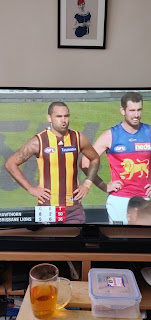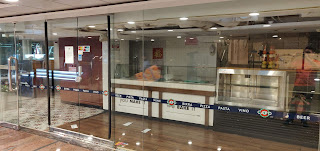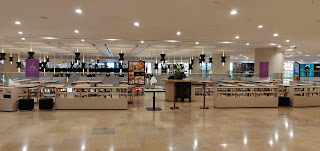The weather in Hong Kong has been spectacular for the last few months. The lack of the China haze has given Hong Kongers an opportunity to not only breathe, but to experience a climate that is far more temperate than normal. In other years, by this time of year it would normally already be hot and humid beyond what is tolerable. It seems like the drop in the industrial output globally may have had an unintended positive outcome for the climate.
All good things come to an end though and the cooler temperatures were now starting to give way to the heat. It seemed like a good time to do a more strenuous hike before the overbearing heat prevented that. With that in mind, we decided we would climb Suicide Cliff, but we would take the long way from Sha Tin. The trip out to the start was annoying, with several station changes required before we reached City One. Once there, we started walking through the town to reach the start of the hike. In hindsight, it was a waste of time to walk from the station and it would have been far more efficient to have taken a minibus or a taxi to the start. When we finally did start walking, we went past village houses, small farms and quite a bit more construction than expected. At one stage, we were walking past intricately terraced banana farms. The terraces, constructed with stones, reminded me of the terraces in Cinque Terre.
By taking the long way to Suicide Cliff, we ended up seeing some incredible sights and views. The path took up up behind the back of Kowloon and we eventually connected to the Maclehose trail. We pushed on through and eventually reached a road and dozens of a cars. Others were clearly also keen to see the views and experience some of the fresh air, but they weren't so keen on the lengthy hike we had taken! We were a bit pressed for time though as we wanted to get to Suicide Cliff before sunset and so we pressed onwards. One of the last big pushes was to get over to the top of Kowloon Peak. Getting to the top of this involved clambering on all fours up a fairly steep rock face. It was tough, but still extremely fun. It had been a long time since I had done anything like this, so it was a welcome challenge. At the top, we saw 360 views across all of the New Territories.We still didn't have that much time, so we continued onwards. Our quick pace meant that the rest of the hike was done in far less time than we expected and we found ourselves passing the television broadcasting towers and cresting the final peak before we reached the edge, the section of the rise with some of the best views of all of Hong Kong.
The top of this climb was a bit treacherous and there were several bouldered up areas that required some climbing over. The paths were quite narrow by this point and it's not a place I would bring someone who isn't physically fit or agile enough. Still, it wasn't the deadly climb that some people seem to think it was. The views were also very much worth the climb up.
Further along at the end, there was a sheer cliff that had me truly terrified. I crawled up to the edge on my belly and looked over and down. I then backed away, before standing up and shuffling closer again to look over. I'm not amazing with heights and I could feel an unsettling sensation in my legs as I looked over the edge.
The views from the top showed that the clearer skies of Hong Kong were sadly gone. The factories in China had restarted and so the familiar haze was back. It was a bit harder to see into the distance, but the sky did have a nice reddish shade as the sun began to set.
As the skies darkened, we decided to start leaving before it was too dark. From the other side of the peak, we could see towards Marina Cove and Sai Kung. The sheer volume of vantage spots this hike provides really makes it one of the best in Hong Kong.
The final walk back down was the worst part of the entire hike. It wasn't too long, but it was a hike down a lengthy set of uneven stairs in the dark. We had some torches and headlamps which helped us down, but it was still tedious. Some of the steps had worn away or be broken, leaving only the metal rods still sticking halfway out of ground. There were a few near misses, but I luckily didn't break my ankles on any of these. We walked past a cemetery and finally reached the road on the bottom. We found ourselves in amongst some of the nicest houses I have ever seen in Hong Kong, enormous mansions in a city where people can live in a space of under 400 sqf. We managed to get a cab and headed back to Elements where we devoured some burgers before heading home. Once I was home, I jumped in the shower and washed away the layer of dirt and grime that I had accumulated through the day. The moment I was in bed, I was out.





















































